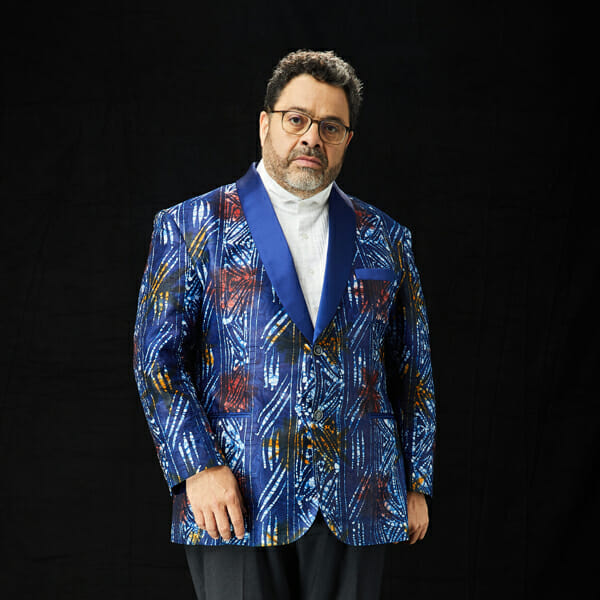Global Beat: Arturo O’Farrill

photo: Jen Rosenstein
***
Arturo O’Farrill has a new album and he’s eager to talk about it, but first, he has a few things to say about Cuba. At the time of this interview, the multi-Grammy-winning bandleader, pianist and composer had just returned from his latest trip to the island nation, where he played the 2023 International Jazz Plaza Festival. O’Farrill is passionate about Cuba—and for good reason. His father, the late arranger, composer and bandleader Chico O’Farrill, was born in Havana to an Irish father and German mother— hence the family name—and became a leading figure in the development of Latin jazz beginning in the early ‘50s.
That vocation was passed along to the 62-year-old Arturo, who hails from Mexico City but has lived in the United States for most of his life. Growing up in New York City, the younger O’Farrill made a name for himself working alongside both jazz and Latin greats—notably fellow pianist Carla Bley—before assuming leadership of Chico’s Afro-Cuban Jazz Orchestra. In 2002, Arturo formed his own Afro Latin Jazz Orchestra, which continues to flourish today. When he travels to Cuba, O’Farrill is not only there to offer his take on Latin jazz but also, he says, to spread awareness of the undeniable bond between Cuba and the U.S.
“Cubans,” he says, “are incredible musicians. They’re incredible dancers. They’re incredible human beings. They know how to party with a glass of water. They know how to fix a ‘57 Chevy with a toothpick and a Band-Aid. They’re basically deeply poverty[1]stricken, but they’re wealthy beyond belief in the things that matter: love of community, love of culture, love of history. I want people to know that the [American] embargo [against Cuba] is strangling the Cuban people, and that the idea of Cuba being on a terrorist state list is ludicrous. Every year, the entire world asks the United States to stop this, and every year we refuse. We think America is the center of the universe, and it’s not.”
Ironically, perhaps, O’Farrill makes these observations about Cuban-American relations at a time in his career when he’s boldly decided to try something different musically, temporarily breaking away from the big band format to create within a smaller frame. Legacies, his sophomore album for the storied Blue Note Records— following 2021’s …dreaming in lions… and credited to the Afro Latin Jazz Ensemble—finds O’Farrill alternating between solo piano performances and tracks cut with a trio. The nine tunes include both original compositions and covers of classics by Thelonious Monk, Herbie Hancock, Sonny Rollins, Bud Powell and others.
“I was scared, to be honest with you,” he says about making the new album, which takes him far from the style with which he’s most closely associated. “But the reason I have the Afro Latin Jazz Orchestra, and the reason I have the career I have, is because I fell in love with Herbie Hancock. You can leave a legacy of awards and accolades and blah, blah, blah, but at the beginning of that journey is the simple act of falling hopelessly in love with something as beautiful as the opening lines of Herbie Hancock’s solo on [Miles Davis’] ‘Seven Steps to Heaven.’”
Hancock’s “Dolphin Dance” kicks off Legacies, one of five tracks on which O’Farrill is accompanied by the young bassist Liany Mateo and drummer Zachary O’Farrill. Zach, as he’s usually called, is one of Arturo’s two musician sons, the other being trumpeter Adam; the two not only work on projects with their dad but also co-lead their own O’Farrill Brothers Band. “Some of the most amazing musical moments of my life, I’ve had with them,” Arturo says of his sons. “Every now and then, when we’re playing together, it’s like extrasensory perception, like highwire, death-defying, time-stretching, harmonic-extrapolating experimenting of the highest order. But I used to change their diapers, man! They’ve seen me drunk! There are so many barriers that are broken and destroyed and done away with when you’ve grown together as a family.”
Arturo has also come to consider the Blue Note Records crew family as well. He’s thrilled to be recording for the label that, he says, has released “a good 70-to-80 percent of the music that I grew up with.” O’Farrill credits label president Don Was with coaxing him into making Legacies. “I find him, quite frankly, to be a visionary,” he says of the company chief. “For the first 15-20 years of my life, I just played jazz: trio jazz, standards, free jazz. Eventually, I became a composer in a very specific genre. Don said, ‘You’re a hell of a pianist. Why don’t you do a jazz album?’ I went, ‘What? [My audience] won’t understand that. You’re just supposed to swim in the lane you’re in.’
“[Don] reminds me of the kind of person we all should be,” O’Farrill continues, “the person who is not demarcated by styles or boundaries or rules. He does what he wants, and I think an artist should just say, ‘Hey, you wanna write some reggaeton jazz, then write reggaeton jazz. You wanna do some string quartet free jazz, then do that. In my career, I’ve collaborated with everyone from DJ Logic to Miguel Zenón to Vijay Iyer and Lionel Loueke. And this is how I feel: I am a lot like my father and a lot like my first bandleader, Carla Bley. I don’t see the divisions. I see the continuum. I know that that’s difficult sometimes for categorizers to deal with, but I’m the guy that sees connections.”




















